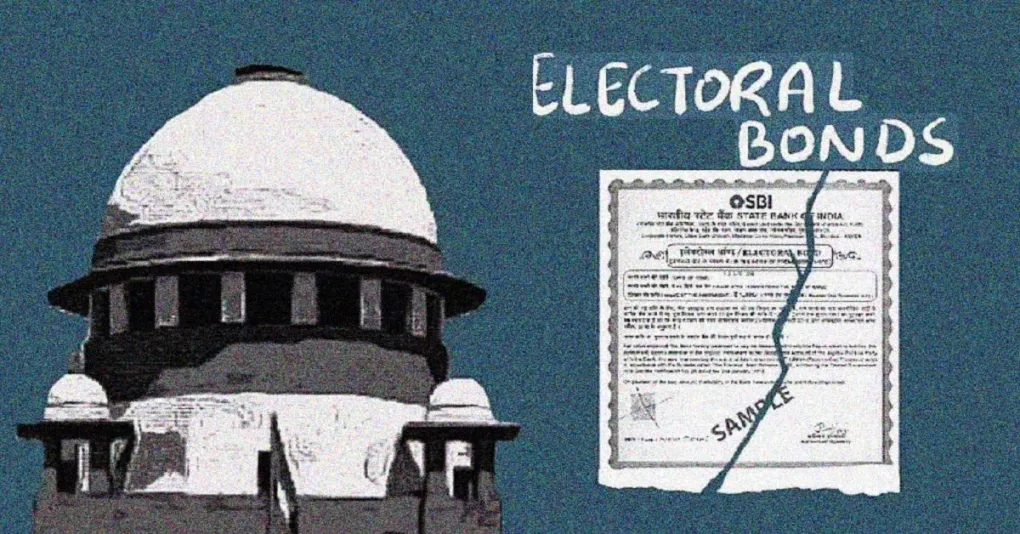Electoral Bond Scheme?
We all know the importance of political parties in a democracy. But how do these parties get funding? Where do they get their money to manage the party? What is an Electoral Bond? A new system came into place in 2017, which enables individuals and corporate groups to donate unlimited amounts of money to any political party. What is this new system, and how did it come into place? How is it going on now? Let’s answer some of the questions now.

What is the electoral bond scheme?
Electoral bonds are a relatively new concept in India’s political funding realm. Introduced in 2017, electoral bonds enabled individuals and corporate groups to anonymously donate unlimited amounts of money to any political party. Until a landmark decision by the Supreme Court in mid-February to scrap the seven-year-old election funding system, just weeks before Lok Sabha elections due in April-May this year, the bonds were purchased by donors in fixed denominations from State Bank of India (SBI) and handed over to any political party, which could cash them using a bank account. The bonds did not require the beneficiary political parties to disclose the donor’s name to anyone, even the Election Commission of India (ECI).
Some of the country’s biggest companies were among its top political funders over the last five years under the political funding system, as per official data released by the Election Commission of India (ECI) on March 15. Under the system, an individual or firm could buy electoral bonds from PSU lender State Bank of India (SBI) and donate them to a political party.
Ownership of the bonds.
Per the electoral bond scheme, an electoral bond was issued like a promissory note, which was bearer in character. A bearer instrument does not carry the name of the buyer or payee. Hence, no ownership information is recorded, and the instrument holder is presumed to be its owner, according to the Association for Democratic Reforms (ADR).
ALSO READ: What is the Enforcement Directorate?
In light of the concerns raised about electoral bonds, there were calls for reforms to ensure greater transparency and accountability in political funding. Some had suggested stricter regulations and disclosures to prevent any misuse of these instruments.
Critics say parties can still break more significant donations into smaller chunks of less than Rs 20,000 to mask their donors and pay for things in cash to circumvent election expenditure limits.
We’ve created this content for informational purposes only, and it reflects the views of its respective authors/entities (freelancers/interns) and not those of Winspire Magazine. Winspire Magazine does not endorse or vouch for the accuracy of the information provided in this content. It is the reader’s responsibility to verify and ensure the information is correct and up-to-date. Winspire Magazine disclaims any liability or responsibility for any damages or losses from using this content. Therefore, readers should take all necessary steps to verify the accuracy and reliability of any information presented in this content.



1 Comment
Comments are closed.